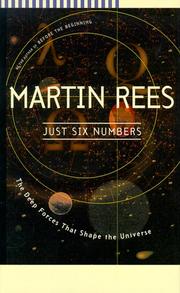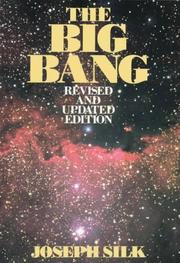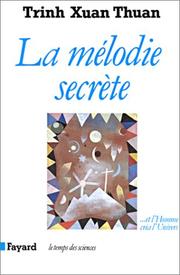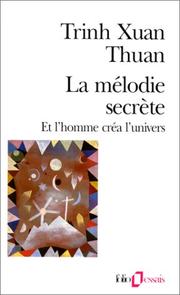| Listing 1 - 10 of 65 | << page >> |
Sort by
|
Book
Year: 2022 Publisher: Turkey : Oku Okut Yayınları,
Abstract | Keywords | Export | Availability | Bookmark
 Loading...
Loading...Choose an application
- Reference Manager
- EndNote
- RefWorks (Direct export to RefWorks)
In this book, the issue that if the Big Bang theory supports the idea that creation from nothing is discussed in terms of hudūth evidence (Kalām cosmological argument). In the first part of the study, the history of cosmology and science prior to the Big Bang theory, the basic premise of the theory, and the anti-Big Bang universe models have been studied in detail. Accordingly, the universe began to form approximately 13,7 billion years ago from an endless dense, small and hot (singularity) state that with a sudden burst (opening = expansion). Einstein's theory of relativity, the continuing expansion of the universe (Hubble's Law), the discovery of the cosmic background microwave radiation, and determine quantities of substances in space are presented for this theory as the most powerful evidence. In the second part, the mutakallimūn's (Muslim theologians) hudūth evidence has been examined and described in detail. This evidence not only endeavors to prove the existence of God; but also is a product of mutakallimūn's efforts to understand and interpret the universe as a whole. The universe which is set forth via hudūth evidence with all parts; including movement, time, and space, is hādith, that is were created from nothing and afterward. Consisting of finite units the universe has a beginning and an end. The universe consists of essence (jawhar) and attribute (a'rādh) has lived a process of constant change and transformation (formed-disruption). In the last part of the work, the Big Bang theory is compared with the hudūth evidence. Finally, I have reached the following conclusions: Proving that the universe is expanding along with The Big Bang theory has precisely refuted the constant, eternal, and unchanging universe concept of materialist and atheist philosophies. In addition, with the relativity theory has been expired the absolute time concept; besides it has been proven the relativity the time and has been started with the universe.
Book
ISBN: 0192192299 0192892142 Year: 1988 Publisher: Oxford : Oxford university press,
Abstract | Keywords | Export | Availability | Bookmark
 Loading...
Loading...Choose an application
- Reference Manager
- EndNote
- RefWorks (Direct export to RefWorks)
Big bang theory --- Cosmology --- Big bang theory. --- Cosmology.
Book
ISBN: 9789004496033 9789042014077 Year: 2001 Publisher: Leiden; Boston : BRILL
Abstract | Keywords | Export | Availability | Bookmark
 Loading...
Loading...Choose an application
- Reference Manager
- EndNote
- RefWorks (Direct export to RefWorks)
This book critically explores answers to the big question, What produced our universe around fifteen billion years ago in a Big Bang? It critiques contemporary atheistic cosmologies, including Steady State, Oscillationism, Big Fizz, Big Divide, and Big Accident, that affirm the eternity and self-sufficiency of the universe without God. This study defends and revises Process Theology and arguments for God's existence from the universe's life-supporting order and contingent existence.
Big bang theory --- Cosmology --- Creation

ISBN: 0465036724 Year: 2000 Publisher: New York : Basic Books,
Abstract | Keywords | Export | Availability | Bookmark
 Loading...
Loading...Choose an application
- Reference Manager
- EndNote
- RefWorks (Direct export to RefWorks)
Cosmology. --- Big bang theory. --- Cosmologie --- Big bang --- Big bang theory --- Cosmology --- Big bang cosmology --- Superdense theory --- Astronomy --- Deism --- Metaphysics --- Cosmogony --- Expanding universe

ISBN: 071671812X 0716719975 9780716719977 9780716718123 Year: 1989 Publisher: New York (N.Y.): Freeman,
Abstract | Keywords | Export | Availability | Bookmark
 Loading...
Loading...Choose an application
- Reference Manager
- EndNote
- RefWorks (Direct export to RefWorks)
Cosmology --- Astronomy --- Deism --- Metaphysics --- Big bang theory --- Big bang cosmology --- Superdense theory --- Cosmogony --- Expanding universe --- Big bang theory. --- Cosmology. --- Cosmologie. --- Big bang.

ISBN: 2213022194 9782213022192 Year: 1990 Publisher: Paris: Fayard,
Abstract | Keywords | Export | Availability | Bookmark
 Loading...
Loading...Choose an application
- Reference Manager
- EndNote
- RefWorks (Direct export to RefWorks)
Big bang theory --- Cosmology --- Astronomy --- Deism --- Metaphysics --- Big bang cosmology --- Superdense theory --- Cosmogony --- Expanding universe --- Adtrophysics
Book
ISBN: 0552131466 9780552131469 Year: 1987 Publisher: [place of publication not identified] Corgi
Abstract | Keywords | Export | Availability | Bookmark
 Loading...
Loading...Choose an application
- Reference Manager
- EndNote
- RefWorks (Direct export to RefWorks)
Big bang theory. --- Cosmology. --- Particles (Nuclear physics). --- Quantum theory. --- Big bang theory --- Big bang cosmology --- Superdense theory --- Cosmogony --- Cosmology --- Expanding universe

ISBN: 2070326233 9782070326235 Year: 1994 Volume: 160 Publisher: Paris : Gallimard,
Abstract | Keywords | Export | Availability | Bookmark
 Loading...
Loading...Choose an application
- Reference Manager
- EndNote
- RefWorks (Direct export to RefWorks)
Astrophysics. --- Cosmology. --- Solar system. --- Astrophysics --- Cosmology --- Big bang theory --- Cosmologie
Book
ISBN: 3658358505 3658358491 Year: 2021 Publisher: Wiesbaden, Germany : Springer,
Abstract | Keywords | Export | Availability | Bookmark
 Loading...
Loading...Choose an application
- Reference Manager
- EndNote
- RefWorks (Direct export to RefWorks)
This book takes the reader on a journey to the Big Bang, learning on the way about various physical facts, observations, and theories. String theory is introduced as a possible all-encompassing physical theory that has the potential to grasp and describe the Big Bang. Its sometimes-spectacular predictions, such as additional spatial dimensions or parallel universes, are explained concisely.
Cosmology. --- Astronomy --- Deism --- Metaphysics --- Big bang theory. --- String models.
Book
ISBN: 0674985044 0674985060 Year: 2018 Publisher: Cambridge, MA : Harvard University Press,
Abstract | Keywords | Export | Availability | Bookmark
 Loading...
Loading...Choose an application
- Reference Manager
- EndNote
- RefWorks (Direct export to RefWorks)
We know the universe has a history, but does it also have a story of self-creation to tell? Yes, in Roy R. Gould's account. He offers a compelling narrative of how the universe--with no instruction other than its own laws--evolved into billions of galaxies and gave rise to life, including humans who have been trying for millennia to comprehend it. Far from being a random accident, the universe is hard at work, extracting order from chaos. Making use of the best current science, Gould turns what many assume to be true about the universe on its head. The cosmos expands inward, not outward. Gravity can drive things apart, not merely together. And the universe seems to defy entropy as it becomes more ordered, rather than the other way around. Strangest of all, the universe is exquisitely hospitable to life, despite its being constructed from undistinguished atoms and a few unexceptional rules of behavior. Universe in Creation explores whether the emergence of life, rather than being a mere cosmic afterthought, may be written into the most basic laws of nature. Offering a fresh take on what brought the world--and us--into being, Gould helps us see the universe as the master of its own creation, not tethered to a singular event but burgeoning as new space and energy continuously stream into existence. It is a very old story, as yet unfinished, with plotlines that twist and churn through infinite space and time.--
Life --- Creation. --- Big bang theory. --- Beginning. --- Origin. --- Universe.
| Listing 1 - 10 of 65 | << page >> |
Sort by
|

 Search
Search Feedback
Feedback About UniCat
About UniCat  Help
Help News
News